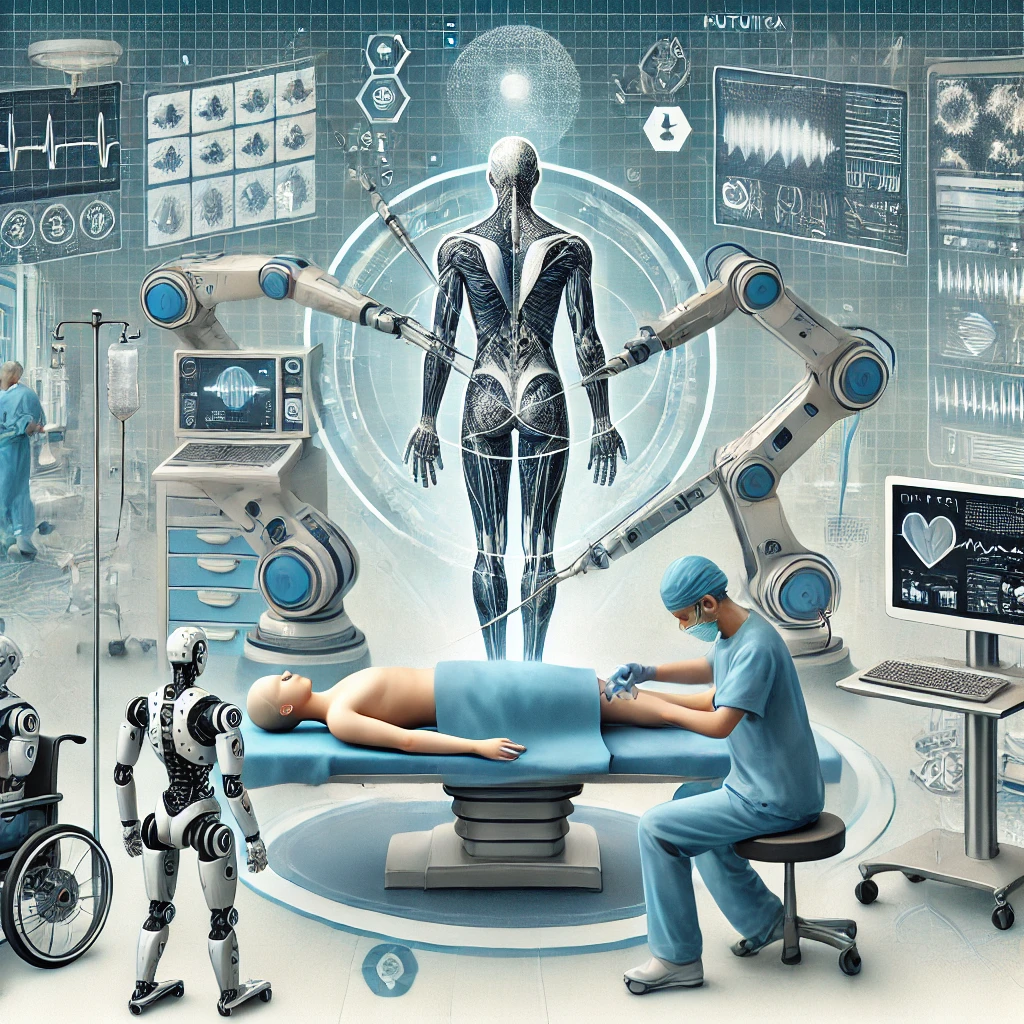Website designed with the B12 website builder. Create your own website today.
Start for free
Let's start with an in-depth article on "The Future of Robotics in Healthcare". This article will explore how robotics is revolutionizing the healthcare industry, focusing on innovations in surgery, diagnostics, and rehabilitation, among other areas.
In recent years, robotics technology has made significant inroads into various sectors, but perhaps nowhere is its impact more palpable than in the healthcare industry. From robotic surgical systems to automated diagnostics and rehabilitation robots, this technology is not only enhancing clinical outcomes but also transforming the way medical care is delivered.
Robotic surgery, once a thing of science fiction, is now a reality in many hospitals around the world. Systems like the da Vinci Surgical System have revolutionized procedures by allowing surgeons to operate with enhanced precision, flexibility, and control. These robotic systems translate a surgeon's hand movements into smaller, more precise movements of tiny instruments inside the patient's body. The benefits include less invasive procedures, reduced pain and discomfort, faster recovery times, and minimal scarring.
Advancements in robotics are not limited to surgery alone. Diagnostic robotics are playing an increasingly crucial role in early disease detection and management. Robotic systems can handle repetitive tasks, process data faster, and perform analyses with a level of precision that is difficult for humans to achieve.
Rehabilitation robots assist patients in regaining abilities lost due to trauma or illness. These robots are designed to facilitate and challenge the abilities of patients during therapy, and they provide a consistent and measurable means of therapy delivery.
Despite their benefits, the integration of robotics in healthcare poses several challenges. The high cost of robotic systems can limit access to only well-funded hospitals, creating disparities in healthcare delivery. Additionally, as robots take on more complex tasks, the ethical implications of machine versus human decision-making in healthcare become a significant concern.
The future of robotics in healthcare looks promising, with ongoing advancements likely to enhance capabilities further and expand their use into new areas of medicine. The potential for robotics technology to work alongside human clinicians to provide enhanced patient care is enormous.
Robotics in healthcare is a rapidly evolving field that promises to revolutionize medical treatments and improve patient outcomes. As this technology continues to advance, it will likely become an integral part of healthcare, changing the landscape of medical care delivery and making healthcare more efficient, precise, and personalized.
This article provides a comprehensive overview of the current state and future prospects of robotics in healthcare, highlighting the transformative impact of this technology on the industry. If you need further information or modifications, let me know!